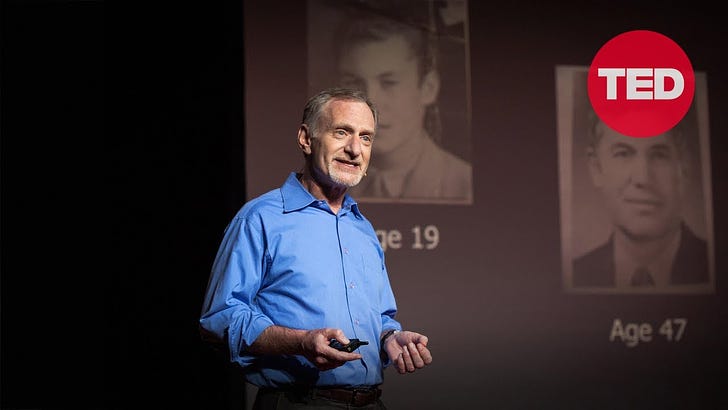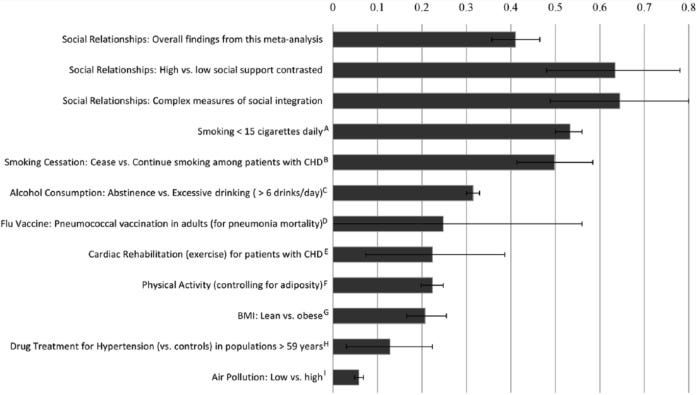We’ve started reading The Good Life after rewatching Robert Waldinger’s TED talk (oldie but goodie!).
Following on from our newsletter last week on how we’re segmenting Consumer Health, we wanted to pick out the value of community and how it can influence health outcomes.
At Eka, we have already invested in Paired as part of this theme. Paired is a mobile app designed to improve relationship health, and is the leading player for romantic relationship management.
The link between your friends and your health outcomes 🗞️
Community has a material impact on our health and well-being*. The connections we have within our communities play a crucial role in shaping our physical, mental, and emotional health outcomes. Today, we dive into the realm of community health and social prescribing, exploring the science behind its significance and why nurturing strong community bonds is essential for our overall well-being.
The Science Behind Community and Health
Numerous studies have demonstrated the powerful influence of community on health outcomes (see reference list below). Individuals who reported feeling socially connected to their community experienced lower rates of mortality, regardless of other risk factors. This highlights the protective effect that strong community ties can have on our health, potentially even surpassing the benefits of individual health behaviors.
Recent research in Preventative Medicine showed that individuals who live in supportive communities characterized by trust, reciprocity, and social cohesion are more likely to engage in health-promoting behaviors such as regular exercise, healthy eating, and preventive healthcare.
The Impact on Physical & Mental Health
Beyond physical health, community also plays a pivotal role in our mental and emotional well-being. Studies have consistently shown that individuals who feel a sense of belonging and connection to their community are less likely to experience depression, anxiety, and other mental health issues. This sense of belonging provides a buffer against the stresses of life, offering social support and a sense of purpose that are essential for maintaining optimal mental health.
Comparison of odds (ln OR) of decreased mortality across several conditions associated with mortality.
Moreover, research published in Psychiatry found that strong community ties can mitigate the harmful effects of stressful life events, such as job loss or bereavement, by providing a network of support and resources. In times of adversity, the solidarity of community can serve as a source of resilience, helping individuals cope more effectively with life's challenges.
Building a Healthier Community
Given the significant impact of community on health outcomes, it is clear that fostering strong community bonds should be a priority for individuals, organizations, and policymakers alike. The NHS introduced social prescribing in 2019 to help those with long-term conditions to get extra support outside NHS services.
Full bibliography: House, Landis, & Umberson, 1988; Holt-Lunstad, Smith & Layton, 2010; Sbarra, Law, & Portley, 2011; Robles, Slatcher, Trombello, & McGinn, 2014; Shor & Roelfs, 2015
Week in Impact Articles ✍🏽
Monday: EVs At 93.9% Share In Norway – Record High
Tuesday: Babies vs AI — it’s no contest
Wednesday: UK nuclear fusion reactor sets new world record for energy output
Thursday: Minimum alcohol unit price in Scotland to rise to 65p
Friday: Cancer waiting times in 2023 worst on record in England
3 Key Charts 📊
1. The moment UK nuclear fusion reactor set new world record for energy output
2. Heat pumps outpace boilers
3. Recall: Comprehensive Model of Personalised Care
Getting in Touch 👋.
If you’re looking for funding, you can get in touch here.
Don’t be shy, get in touch on LinkedIn or on our Website 🎉.
We are open to feedback: let us know what more you’d like to hear about 💪.







